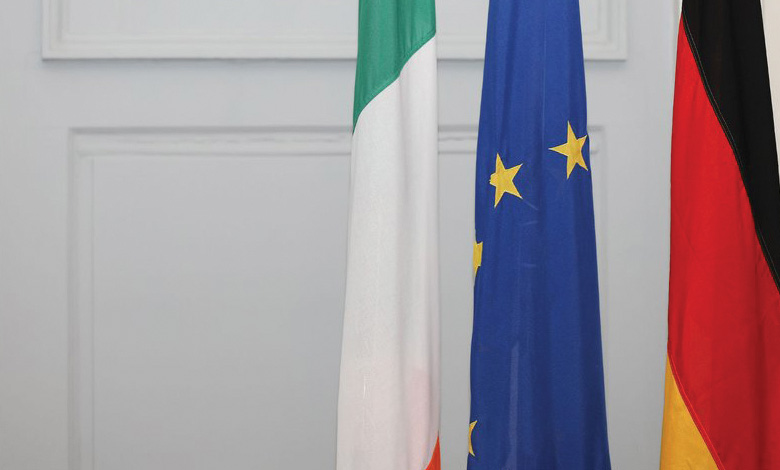German Ambassador to Ireland: Hydrogen cooperation is ‘an obvious win-win’

Germany’s Ambassador to Ireland, Cord Meier-Klodt, speaks with Ciarán Galway about cooperation to unlock Ireland’s enormous offshore renewable energy potential and deliver on Germany’s similarly massive energy demand.
Ciarán Galway (CG): Currently, what are the German Embassy in Dublin’s most significant strategic priorities in relation to hydrogen?
 Cord Meier-Klodt (CM-K): To put it bluntly, you could say: To turn the potential of an obvious win-win scenario in the relationship between our two countries into a reality. To link, as fast as possible, the enormous potential that Ireland has in the field of green hydrogen to the equally enormous need that the German industry has for green hydrogen in replacing other sources of energy and become carbon-neutral within until 2045.
Cord Meier-Klodt (CM-K): To put it bluntly, you could say: To turn the potential of an obvious win-win scenario in the relationship between our two countries into a reality. To link, as fast as possible, the enormous potential that Ireland has in the field of green hydrogen to the equally enormous need that the German industry has for green hydrogen in replacing other sources of energy and become carbon-neutral within until 2045.
For that, we need to look for mutually beneficial ways of exploiting this unique opportunity. This has to do with putting Ireland on the mental map of decision-makers in the Federal Government of Germany as well as businesses and to stress the need for speedy progress to politicians and experts in Ireland.
CG: How can the environmental and economic benefits of green hydrogen be unlocked at political, industrial, and public levels through cooperation between Ireland and Germany?
CM-K: Business circles, especially German internationally exposed business circles, know how to exploit opportunities. But in order to do that on a sustainable basis, they need a clear and transparently designed legal and political framework.
“Germany has an enormous demand for green hydrogen. At the same time, imports need to be diversified. We have learned a painful lesson in this regard.”
Germany’s Ambassador to Ireland, Cord Meier-Klodt
In this regard, the Irish Government has already delivered on many aspects of this ambitious objective. A point in case is the remarkable pioneering work that is on-going at the recently founded Maritime Regulatory Authority.
The next step is all about providing the necessary infrastructure and laying the financial foundations that are required to develop this infrastructure. This will require massive investment, mostly but not exclusively in the area of offshore wind parks, ports and pipelines. This requires a mutual understanding on a reasonable burden sharing among all players involved.
None of this can be achieved by one party alone: Actors in politics, business and the society as a whole need to work hand in hand to achieve those ambitious targets. The German Government is doing its homework as well: the bill on the H2 core grid has just passed parliament and a hydrogen acceleration law is in the making.
CG: What opportunities are there for German companies to assist in scaling the hydrogen industry in Ireland?
CM-K: German companies can bring in a lot of proven experience and innovation skills on virtually all aspects of infrastructural and technology – from offshore windmills over port expansions to pipelines and electrolysers – and many German companies are already based in Ireland and stand ready to deliver.
On the other hand, and in order to allow for proper planning of infrastructural needs, direct exchange with potential German off-takers needs to be facilitated. German steel mills like ThyssenKrupp or Salzgitter, for example, are in the process of establishing direct reduction plants in order to decarbonise production.
CG: What is the significance of the Joint Declaration of Intent (JDI) on cooperation in the field of green hydrogen between the Irish Department of the Environment, Climate and Communications and the German Federal Ministry of Education and Research?
CM-K: While we know that there is a massive need for green hydrogen, our National Hydrogen Strategy speaks of up to 130 TWh annually by 2030, many more detailed questions about the processing, transport, storage, and use of green hydrogen remain to be answered.
This must swiftly be taken up by science and research in order to deliver an even sounder basis for planning and decision-making. Through our bilateral cooperation we will also see specialised knowledge developing with scientists in Ireland as well as Germany that will be of vital use in both countries.
CG: How will cooperation between Ireland and Germany help simultaneously accelerate the EU’s energy transition and enhance European energy security?
CM-K: Clearly, we need to cooperate with other partners in Europe. It simply is not economic, sustainable, nor secure to think about energy policy only from a national perspective. It is also a question of solidarity in the end.
We therefore see our national and bilateral initiatives embedded in the overall European efforts to decarbonise our economies and secure supplies. REPowerEU, after all, speaks of 10 Mt of green hydrogen to be produced within the EU by 2030. The EU also has a key role to play when it comes to establishing a European hydrogen backbone.
CG: Where does Ireland fit into Germany’s overarching vision for green hydrogen?
CM-K: Again, Germany has an enormous demand for green hydrogen. At the same time, imports need to be diversified. We have learned a painful lesson in this regard.
So, in principle, we are interested in cooperating with various partners that do have a potential for green energy. Some of them already have a long-standing tradition when it comes to offshore energy production and might, therefore, be a bit ahead of Ireland.
However, Ireland’s potential is just so huge that any solid hint that Ireland is speeding up the process of setting the framework to harvest this potential in big style will be of great interest to German stakeholders. This is particularly true, as we are in the process of finalising a specific Hydrogen Import Strategy.





